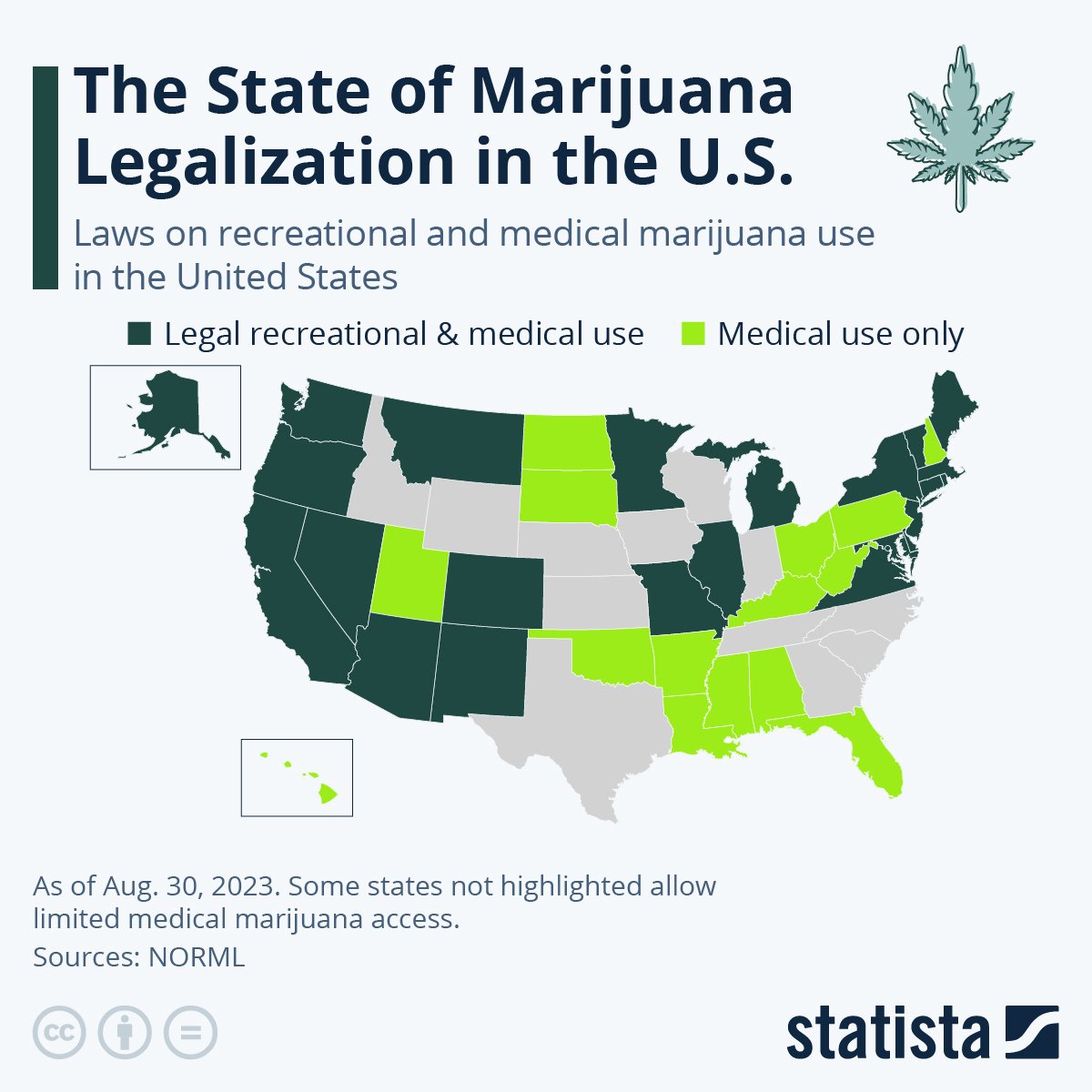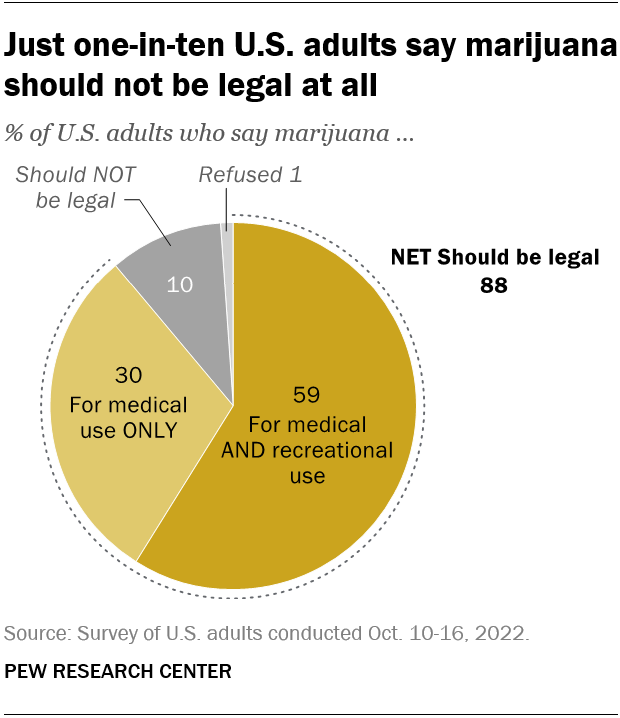How many U.S. states have legalized marijuana for medical use only?
Critical Analysis
According to the data from the map above, how many American states have legalized marijuana for medical use only?
how many American states have legalized marijuana for recreational or medical use?
Describe one geographical pattern regarding marijuana’s legality.
Describe the legality of marijuana in your state based on state law.
As you know, The Controlled Substances Act (CSA) of 1970 is the federal U.S. drug policy under which the manufacture, importation, possession, use and distribution of certain drugs (including marijuana) is regulated. Describe the legality of marijuana in your state based on federal law.
What Article I power gives congress the constitutional right to pass The Controlled Substances Act (CSA)?
As everyone on earth knows, the CSA was signed into law by President Richard Nixon (crook) on October 27, 1970. The addition, deletion or change of controlled substance schedule of a medicine or other chemical may be requested by the U.S. Drug Enforcement Agency (DEA), the Department of Health and Human Services, the U.S. Food and Drug Administration (FDA), or from any other party via petition to the DEA. The DEA implements the CSA and may prosecute violators of these laws at both the domestic and international level. Describe how drug policy making as described above is an example of checks and balances.
As you know, marijuana is legal for adults in 22 states and Washington, DC. Medical marijuana is legal in 38 states and DC. At the same time, according to The Controlled Substances Act (CSA) of 1970 marijuana is illegal in the United States and is classified as a Schedule 1 drug, the highest level of control, along with LSD, heroin and ecstasy. Federalism is the division of powers between national and state governments. Explain how marijuana can both be legal and illegal at the same time.
Based on your knowledge of American politics, especially focusing on the legislative process, explain how something that 88% of all Americans think should be legal, is illegal.
Prosecutorial discretion (PD) is the longstanding authority of an agency charged with enforcing the law to decide where to focus its resources and whether or how to enforce the law against an individual. PD is an indispensable aspect of any functioning legal system. PD is exercised on a case-by-case basis. Current Attorney General Merrick Garland is in charge of enforcing the nation’s laws, including the 1970 federal law outlawing marijuana. Imagine that A.G. Garland was opposed to this anti-drug law. Explain what an Attorney General can do to avoid enforcing a law.
Learning Extension
Watch the documentary below about federal enforcement of marijuana laws in states where marijuana is "legal" then complete the federalism and marijuana worksheet below.
Action Extension
Check out this interactive map of the legality of marijuana in the 50 states. (pro tip: marijuana is illegal according to federal law), then contact your state legislators and tell them what you think about your state drug laws.



